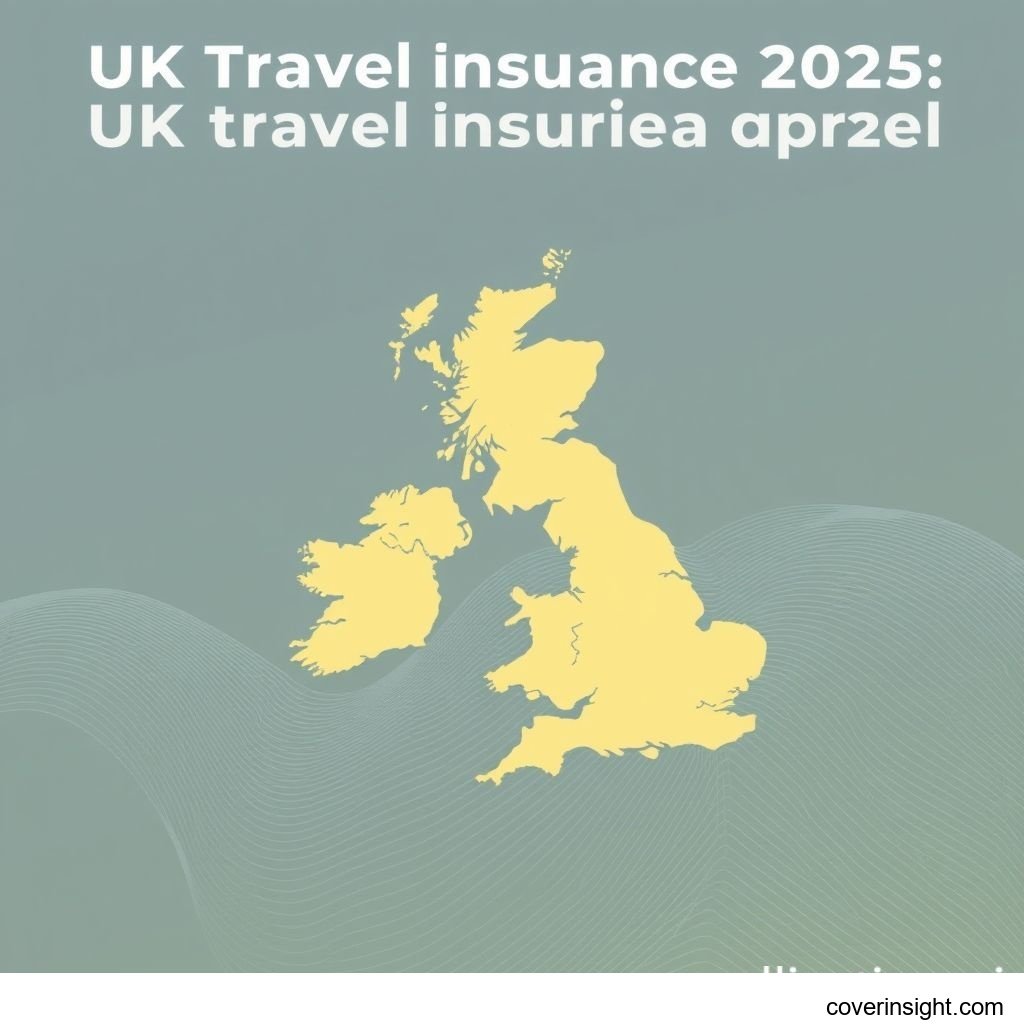Introduction to 90 Day Travel Insurance
Planning an extended trip from Great Britain (GB) in 2025 requires meticulous preparation, and at the heart of this readiness is securing appropriate travel insurance. For many adventurers, gap year students, or those simply embarking on a longer holiday, standard single-trip policies often fall short, covering only up to 30 or 60 days. This is where 90 day travel insurance becomes not just beneficial, but essential. It provides comprehensive protection for journeys lasting up to three months, ensuring peace of mind against unforeseen circumstances. With the evolving landscape of travel and health regulations, understanding your coverage options, especially for longer durations, is paramount. This guide aims to demystify the process of finding cheap UK travel insurance that offers robust medical cover and suits your specific needs for a 90-day adventure. It's about smart planning to protect your health, your finances, and your trip.
Understanding Your Needs for 90 Day Travel Insurance
Before you start comparing policies, it's crucial to assess your specific requirements. Not all 90 day travel insurance policies are created equal, and what constitutes adequate cover depends heavily on your personal circumstances and planned activities.
Pre-existing Medical Conditions
One of the most critical aspects when seeking 90 day travel insurance is disclosing any pre-existing medical conditions. Failure to do so can invalidate your policy, leaving you vulnerable to significant medical bills abroad. Insurers assess risk based on your medical history, and while it may lead to higher premiums, it's a necessary step for valid coverage.
-
Full Disclosure: Always provide accurate and complete information about your health.
-
Specialist Insurers: Some providers specialise in cover for conditions like diabetes, heart disease, or cancer.
-
Medical Screening: Be prepared to undergo a confidential medical screening process, often online or over the phone.
Finding affordable cover with pre-existing conditions is possible, but it requires diligent research and comparison. Don't compromise on honesty, as the financial implications of uncovered medical emergencies can be devastating.
Adventure Sports and Activities
Your travel plans might include more than just sightseeing. If you intend to participate in adventure sports or specific activities such as skiing, scuba diving, trekking, or even certain water sports, you'll need to ensure your 90 day travel insurance policy explicitly covers these. Standard policies often exclude high-risk activities.
Common activities requiring extra cover include:
- Winter sports (skiing, snowboarding)
- Water sports (jet-skiing, white-water rafting)
- Trekking at high altitudes
- Scuba diving (to certain depths)
- Motorcycling or quad biking
Always check the policy wording carefully. If an activity isn't listed, assume it's not covered and inquire with the insurer or look for an add-on. This additional coverage can significantly enhance your trip's safety net.
Exploring EHIC Replacement Coverage
Since the UK's departure from the European Union, the European Health Insurance Card (EHIC) and its replacement, the Global Health Insurance Card (GHIC), no longer offer the same level of reciprocal healthcare access that many GB travellers once relied upon. While GHIC provides access to state-provided healthcare in EU countries on the same terms as a resident, it is not a substitute for comprehensive travel insurance. Specifically, GHIC/EHIC does not cover:
-
Private medical treatment
-
Repatriation costs (being brought back to the UK)
-
Lost or stolen belongings
-
Trip cancellations or delays
Therefore, securing robust EHIC replacement coverage as part of your 90 day travel insurance is more crucial than ever for travel to Europe. Look for policies that explicitly state comprehensive medical cover, including emergency medical treatment and repatriation, ensuring that you won't be out of pocket should you require hospitalisation or medical transport back to the UK. This type of coverage bridges the gap left by the reduced scope of reciprocal agreements, offering peace of mind for longer stays in Europe.
Comprehensive Coverage Details
Understanding what's included and excluded in your 90 day travel insurance policy is fundamental to making an informed decision. Comprehensive policies offer a broad range of protections designed to mitigate the various risks associated with extended travel.
What’s Typically Included
A robust 90-day travel insurance policy should offer extensive coverage for a variety of scenarios. Key inclusions generally cover:
-
Emergency Medical Expenses: This is perhaps the most vital component, covering hospitalisation, doctor's fees, prescription medication, and emergency dental treatment abroad. High limits are crucial, often £5 million or more.
-
Medical Repatriation: The cost of bringing you back to the UK due to a medical emergency. This can be extremely expensive without insurance.
-
Trip Cancellation and Curtailment: Reimbursement for non-refundable costs if your trip is cancelled or cut short due due to unforeseen events like illness, bereavement, or natural disasters.
-
Baggage and Personal Belongings: Cover for lost, stolen, or damaged luggage, passports, and other personal items. There are usually single item limits to be aware of.
-
Personal Liability: Protection if you accidentally injure someone or damage their property while abroad.
-
Travel Delay and Missed Departure: Compensation for significant delays, or costs incurred due to missing a connecting flight or departure because of an unforeseen event.
-
Legal Expenses: Assistance with legal costs if you need to pursue a claim against a third party.
Always scrutinise the policy wording to understand the specific limits and conditions for each of these areas.
Common Exclusions to Be Aware Of
While comprehensive, no 90 day travel insurance policy covers everything. It's equally important to understand what is typically excluded to avoid unwelcome surprises. Common exclusions include:
-
Undeclared Pre-existing Medical Conditions: As mentioned, non-disclosure can invalidate cover.
-
Alcohol or Drug-Related Incidents: Injuries or illnesses resulting from excessive alcohol consumption or recreational drug use.
-
Acts of War or Terrorism: Travel to regions advised against by the Foreign, Commonwealth & Development Office (FCDO) due to conflict or terrorism.
-
Participation in Professional Sports: Unless specifically added and declared.
-
Negligence: Losses due to leaving belongings unattended or failing to take reasonable precautions.
-
Elective Treatment: Medical procedures that are not emergency-related or were pre-planned.
-
Travelling Against FCDO Advice: Ignoring official government warnings against travel to certain areas.
Carefully reading the small print and the 'General Exclusions' section of your policy document is essential to fully understand its limitations.
The Role of Credit Card Travel Insurance
Many people are unaware that their credit card might offer some form of travel insurance as a perk, especially with premium or platinum cards. While this can seem like a convenient way to get cover, it's vital to understand its limitations, particularly when considering 90 day travel insurance.
Credit card travel insurance typically offers:
-
Basic Coverage: Often includes flight cancellation, baggage loss, and some medical cover.
-
Short Duration: Policies often have strict limitations on the length of trips covered, usually 30 days or less.
-
Activation Requirements: May require you to have paid for your trip using that specific card.
-
Limited Scope: Exclusions for adventure sports, pre-existing conditions, or high-value items are common.
For a 90-day trip, credit card travel insurance is unlikely to provide the comprehensive protection you need. It rarely covers the full duration or the extensive medical repatriation costs associated with longer trips. While it can be a nice bonus for short breaks, for an extended 90-day journey, it's almost always advisable to purchase a dedicated, standalone 90 day travel insurance policy that explicitly meets all your needs and has higher coverage limits. Always check the terms and conditions of your credit card's policy and compare it thoroughly with a dedicated travel insurance provider.
Cost Analysis for 90 Day Travel Insurance
The price of 90 day travel insurance can vary significantly. While finding cheap UK travel insurance is a common goal, it's important not to compromise essential cover for a lower premium. Understanding the factors that influence cost can help you secure the best value.
Key Factors Influencing Premiums
Several variables contribute to the overall cost of your 90-day travel insurance policy. Being aware of these can help you manage your budget and make informed decisions.
-
Age of the Traveller: Generally, older travellers face higher premiums due to an increased likelihood of health issues.
-
Destination: Travel to countries with high medical costs (e.g., USA, Canada, Caribbean) will result in more expensive premiums.
-
Duration of Trip: As you're looking for 90-day cover, this is already a longer duration than standard policies, naturally increasing the cost compared to shorter trips.
-
Pre-existing Medical Conditions: As discussed, these significantly impact premiums, reflecting the higher risk of medical claims.
-
Declared Activities: Including high-risk sports or activities will add to the cost.
-
Level of Cover: Policies with higher medical limits, more extensive cancellation cover, or lower excesses will be more expensive.
-
Excess Amount: Choosing a higher excess (the amount you pay towards a claim) can reduce your premium, but means you pay more if you make a claim.
Understanding these factors allows you to tailor your search and potentially adjust certain elements to find a premium that fits your budget while still providing adequate protection.
Strategies for Saving Money
While it's important not to under-insure yourself, there are smart ways to secure cheap UK travel insurance without sacrificing vital protection for your 90-day trip.
-
Compare Quotes Extensively: Use comparison websites to get quotes from multiple insurers. Don't just look at the price; compare the coverage details side-by-side.
-
Buy Online: Many insurers offer discounts for purchasing policies directly online.
-
Increase Your Excess: If you're comfortable with a higher out-of-pocket payment in case of a claim, increasing your excess can lower your premium.
-
Consider Multi-Trip Policies (if applicable): If you plan multiple trips within a year, an annual multi-trip policy might be more cost-effective than buying several single-trip policies, provided it covers 90-day durations per trip. Not all do, so check this carefully.
-
Group Policies: If travelling with family or friends, a group policy can sometimes be cheaper than individual policies.
-
Bundle Policies: Some providers offer discounts if you purchase multiple types of insurance (e.g., home and travel) from them.
-
Buy Early: While last-minute insurance is available, buying in advance can sometimes secure better rates and ensures you're covered for cancellation from the moment you book.
Remember, the cheapest policy isn't always the best. Prioritise comprehensive medical cover and sufficient limits for baggage and cancellation, especially for a significant trip like a 90-day adventure.
Navigating the Claims Process
Even with the most meticulously chosen 90 day travel insurance, circumstances can arise that necessitate making a claim. Understanding the process can significantly ease what might already be a stressful situation.
Steps to Filing a Successful Claim
A well-prepared claim is a more likely claim to be approved. Follow these steps to maximise your chances of success:
-
Contact Your Insurer Immediately: For medical emergencies, call your insurer's 24/7 emergency assistance line as soon as possible. For other incidents, notify them promptly according to their policy guidelines.
-
Gather Evidence: This is crucial. For medical claims, obtain medical reports, diagnoses, and receipts. For lost or stolen items, get a police report within 24 hours of discovery and keep purchase receipts or proof of ownership. For delays, get official statements from the airline/operator.
-
Complete Claim Forms Accurately: Fill out all sections of the claim form clearly and precisely. Any inaccuracies or omissions can cause delays or even rejection.
-
Submit All Required Documents: This often includes:
-
Policy number and personal details
-
Proof of purchase for affected items
-
Original receipts for expenses incurred
-
Police reports or medical certificates
-
Confirmation of travel (tickets, bookings)
-
-
Keep Copies: Always retain copies of all documents you send to your insurer, including the claim form.
-
Be Patient: The claims process can take time. Follow up politely if you haven't heard anything within the insurer's stated timeframe.
Following these steps diligently can streamline the process and help ensure your 90 day travel insurance provides the financial safety net you paid for.
What to Do if a Claim is Denied
A denied claim can be frustrating, especially when you're relying on your 90 day travel insurance for financial support. However, a denial isn't always the final word.
-
Understand the Reason: Request a clear, written explanation from your insurer detailing why your claim was denied. Review this against your policy wording. Common reasons for denial include:
-
Non-disclosure of information (e.g., medical conditions).
-
Exclusion in the policy (e.g., specific activity not covered).
-
Insufficient evidence.
-
Claiming for less than the excess.
-
-
Gather More Evidence: If the denial is due to insufficient evidence, try to obtain additional documentation.
-
Internal Review/Complaint: If you believe the denial is unfair or incorrect, follow the insurer's internal complaints procedure. This typically involves escalating your complaint to a more senior person or department within the company.
-
External Adjudication: If the internal complaint process doesn't resolve the issue to your satisfaction, you can escalate your complaint to the Financial Ombudsman Service (FOS) in the UK. The FOS is a free, independent service for resolving disputes between consumers and financial firms. They will review your case and the insurer's decision. For more information, visit the Financial Conduct Authority website, which regulates financial services firms, including insurance providers.
Persistence and a clear understanding of your rights and the policy terms are key when appealing a denied claim. The Association of British Insurers also provides general guidance on insurance matters and consumer rights.
FAQs on 90 Day Travel Insurance
Here are some frequently asked questions about securing 90 day travel insurance for UK residents.
-
How much does 90 day travel insurance cost?
The cost varies significantly based on factors like your age, destination, pre-existing medical conditions, and chosen level of cover. While it's generally more expensive than shorter-term policies due to the extended duration, prices can range from under £50 to several hundred pounds, especially for older travellers or those with complex medical needs. Always compare multiple quotes to find the best value.
-
What affects premiums for 90 day travel insurance?
Key factors influencing premiums include the traveller's age, the specific destinations (countries with higher medical costs are more expensive), any declared pre-existing medical conditions, the inclusion of adventure sports or activities, and the overall level of cover chosen (e.g., higher medical limits, lower excess).
-
Is 90 day travel insurance mandatory?
While it's not legally mandatory to have travel insurance for most destinations, it is highly recommended, especially for longer trips like 90 days. Without it, you would be personally liable for potentially massive costs related to emergency medical treatment, repatriation, lost luggage, or trip cancellation, which could run into tens or hundreds of thousands of pounds.
-
How do I choose the best 90 day travel insurance policy?
To choose the best policy, first, assess your specific needs (medical conditions, activities, destinations). Then, compare quotes from multiple reputable insurers, paying close attention to medical cover limits, exclusions, excess amounts, and repatriation cover. Read customer reviews and check the insurer's financial stability. Don't just opt for the cheapest option; ensure it provides adequate protection for your unique trip.
-
What are the consequences of not having 90 day travel insurance?
Travelling without comprehensive 90 day travel insurance can lead to severe financial repercussions. Without cover, you would be responsible for all costs if you encounter a medical emergency, need to be flown home due to illness or injury, lose your passport or belongings, or have your trip cancelled. These expenses can be exorbitant and could lead to significant debt. It's a risk not worth taking for any extended period of travel.
For further resources on travel and insurance, consider exploring trusted sites like Insurance Resources Global, which offers a broad perspective on insurance needs, or delve into country-specific information at GB Insurance Home for detailed insights tailored to the UK market.








Comments